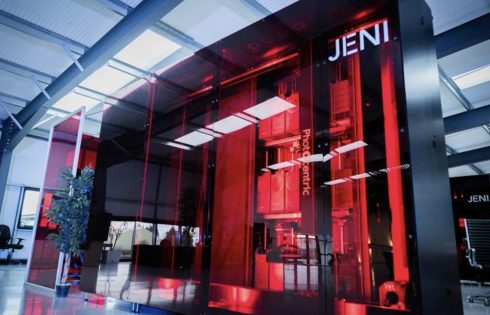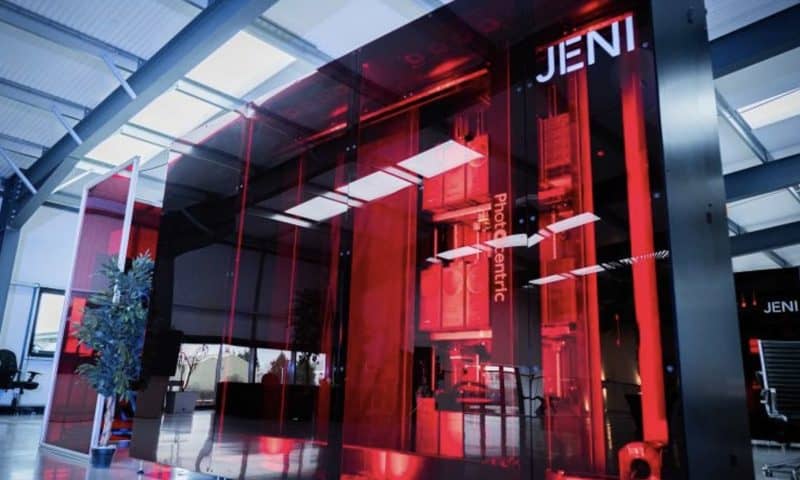
Innovate UK (IUK) reported the start of an industry-academia collaboration to advance sustainable bioprocessing through innovative materials for additive manufacturing (3D printing) as part of the sustainable medicines manufacturing innovation: collaborative R&D.
Project Nexus, a collaboration between Photocentric, Sartorius, Metamorphic, CPI, the University of Sheffield, and Imperial College London, is embarking on the development of new sustainable materials for application in single-use bioprocessing equipment such as bioreactors.
Single-use technologies (SUTs) offer numerous benefits, including faster setup and flexible process configurations, while significantly contributing to the reduction of resources like water, electricity, and caustic chemical usage. Although their waste contributes only about 0.002% to global plastic waste, this project aims to further enhance the advantages of SUTs by introducing sustainable material formulations for additive manufacturing.
Through £1.9M of funding via IUK, Project Nexus aims to bring together expertise across advanced manufacturing automation, digital design and optimization, as well as material innovation and bioprocessing, to pioneer the future of additive manufacturing (AM) of bioreactors at scale.
The project aspires to offer a greener alternative to SU bioreactors with enhanced circularity and end-of-life pathways, all while retaining the flexibility of disposable systems.
“Through harnessing the advanced capabilities of our latest 3D printing innovation, JENI, we’re really excited to be part of this important partnership and the development of a new generation of cost effective, sustainable solutions for biopharma,” said Paul Holt, founder and managing director, Photocentric.
“We’re excited to contribute the AMRC’s wealth of experience in sustainable design engineering to Project Nexus. This collaborative initiative will be a significant step in making the biopharmaceutical sector more sustainable, ultimately advancing the U.K.’s net zero ambitions,” noted Jose Casamayor Alarco, PhD, technical fellow at the University of Sheffield Advanced Manufacturing Research Center (AMRC).
3D printing technology
By utilizing advanced 3D printing technology and newly developed eco-friendly, bio-based resins to produce thermosets that can be autoclaved for reuse, Project Nexus aims to tackle current challenges and enhance sustainability through greater circularity, i.e., aligning with government targets for reducing waste and promoting sustainable manufacturing.
The bioreactors will be tested for pharmaceutical R&D and point-of-care manufacturing, with potential reuse in industrial biotechnology for green chemical production. In addition to this, the technical, economic, and environmental impact will be assessed, focusing on the benefits of advanced manufacturing (AM) technology in reducing waste and enhancing efficiency through material circularity and system flexibility.
“The goals at the heart of the Nexus project go beyond simply enabling us to unlock the applications of today. They also allow us to realize the future obligations of us all, through the development of sustainable material formulations,” explained Jeremy Pullin, head of AM & manufacturing technology of Sartorius.
“We’re excited to contribute our expertise in material innovation to Project Nexus,” emphasized Tony Jackson, director of formulation at CPI. “By developing a high-performance, bio-based resin tailored for bioreactors, we are enabling a more sustainable future for biopharmaceutical manufacturing.
“Our focus on circularity and end-of-life solutions ensures that this project not only advances technological capabilities but also drives meaningful progress toward net zero goals. We look forward to collaborating with our partners to redefine the role of additive manufacturing in the sector.”
Project Nexus is fully established and set to deliver over the next 24 months, according to UK Research and Innovation (UKRI), a non-departmental public body sponsored by the department for science, innovation, and technology (DSIT). IUK, part of UKRI, will work with the department of health and social core (DHSC) to invest up to £15 million to support the development and adoption of sustainable technologies for the manufacturing of medicines.

